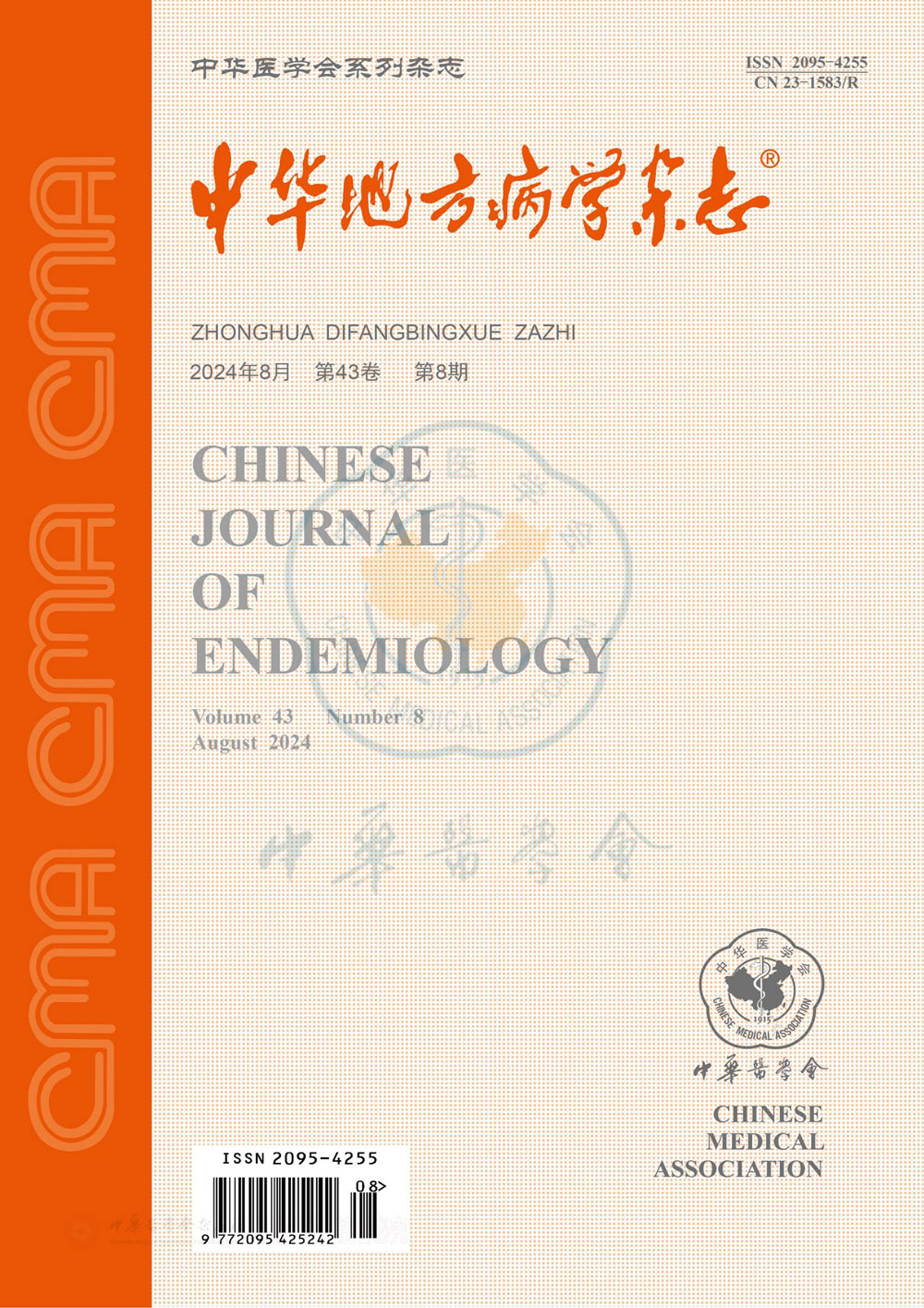2010年江苏省城市社区碘缺乏症防治知识随机电话调查结果分析
Q3 Medicine
引用次数: 2
摘要
目的了解江苏省城市社区居民对碘缺乏症危害及防治措施的认知程度和碘盐与非碘盐的选择意愿,为进一步调整碘缺乏症防治策略提供最新建议。方法2010年在江苏省省会城市(南京)和沿海城市(南通)每隔2个街区拨打计算机随机抽取的家庭电话,对经培训的卫生服务人员进行碘缺乏症预防知识问卷调查。调查主题包括:在非碘盐和加碘盐同时供应的情况下,当地居民选择哪种盐及其原因;居民对碘缺乏症危害的认识及防治措施;居民个人信息(仅包括职业类别和年龄组别)。从随机抽取的10%有效问卷中重新检查关键字段。结果通过拨打南京市和南通市2021个随机电话号码,获得有效问卷455份。对10.1%(46/455)有效问卷进行复核后,总符合率为87.0%(40/46)。在这455名受访者中,有73.2%(333/455)的人表示在同时供应加碘盐和非加碘盐的情况下会选择加碘盐。69.0%(314/455)的调查对象听说过碘缺乏症,其中79.6%(250/314)的调查对象知道碘缺乏症的危害是地方性甲状腺肿,10.8%(34/314)的调查对象知道碘缺乏症可造成不同程度的精神损害。对于有效预防碘缺乏症的方法,69.4%(218/314)的被调查者知道吃加碘盐可以预防碘缺乏症,41.1%(129/314)的被调查者知道吃紫菜或海带可以预防碘缺乏症。结论江苏省和省会城市社区碘缺乏症健康促进和健康教育工作取得了显著成效。然而,有些人仍然不太清楚我们为什么要吃碘盐。盐业在目前的管理体制下,同时提供加碘盐和非加碘盐还为时过早。关键词:碘;缺乏疾病;盐;电话;数据收集本文章由计算机程序翻译,如有差异,请以英文原文为准。
Analysis of a random telephone survey result of knowledge in prevention and treatment of iodine deficiency disorders in urban communities of Jiangsu province in 2010
Objective To provide updated recommendations for further adjustment of iodine deficiency disorders control strategy by evaluating awareness of the dangers of iodine deficiency disorders and their prevention and control measures among local residents and the willingness of choosing iodized or non-iodized salt in urban communities of Jiangsu province.Methods Trained health service workers did questionnaire investigation on iodine deficiency disorders prevention knowledge by calling computer-randomly selected family telephone numbers in every two blocks of provincial capital (Nanjing) and coastal city (Nantong) in Jiangsu province in 2010.The survey topics covered include:when supplied with both non-iodized and iodized salt,what kind of salt the local residents chose and the reasons; residents awareness of the dangers of iodine deficiency disorders and their prevention and control measures; resident's personal information(including only occupational category and age group).Key fields were rechecked from 10% randomly selected valid questionnaires.Results Four hundred and fifty-five valid questionnaires were obtained by calling 2021 randomized telephone numbers in Nanjing and Nantong cities.After 10.1%(46/455) of the valid questionnaires were rechecked,the total coincidence rate was 87.0%(40/46).In the two cities,there were 73.2% (333/455) of those 455 respondents saying they would choose iodized salt when iodized and non-iodized salt were supplied at the same time.There were 69.0%(314/455) of respondents had heard of iodine deficiency disorders,of which 79.6%(250/314) of them were aware of the dangers of iodine deficiency is endemic goiter,and 10.8% (34/314) of them knew that iodine deficiency can cause varying degrees of mental damage.With respect to useful preventive methods of iodine deficiency disorders,there were 69.4% (218/314) respondents know that eating iodized salt,and 41.1% (129/314) respondents know that taking laver or kelp would prevent iodine deficiency disorders.Conclusions Remarkable achievements on iodine deficiency disorders health promotion and health education have been gained in urban communities of both the provincial capital and the coastal city Jiangsu province.However,some of the people are still not very clear why we should eat iodized salt.Salt industry in the current management system,is still premature to provide iodized salt and non-iodized salt simultaneously now.
Key words:
Iodine; Deficiency diseases; Salts; Telephone; Data collection
求助全文
通过发布文献求助,成功后即可免费获取论文全文。
去求助
来源期刊

中华地方病学杂志
我国对人类健康危害特别严重的地方性疾病:克山病、大骨节病、碘缺乏病、地方性氟中毒、地方性砷中毒、鼠疫、布鲁氏菌病、寄生虫、新冠肺炎等疾病,同时还报道多发性自然疫源性疾病。
CiteScore
1.60
自引率
0.00%
发文量
8714
期刊介绍:
The Chinese Journal of Endemiology covers predominantly endemic diseases threatening health of the people in the areas affected by the diseases including Keshan disease, Kaschin-Beck Disease, iodine deficiency disorders, endemic fluorosis, endemic arsenism, plague, epidemic hemorrhagic fever, brucellosis, parasite diseases and the diseases related to local natural and socioeconomic conditions; and reports researches in the basic science, etiology, epidemiology, clinical practice, control as well as multidisciplinary studies on the diseases.
 求助内容:
求助内容: 应助结果提醒方式:
应助结果提醒方式:


